AI Predictions for the Year 2030: The Future of Artificial Intelligence

Artificial intelligence is rapidly advancing and getting more powerful every day. Soon, by 2030, it will change how we live in many ways. It will change jobs, industries, and even how we do things daily. Let's dive into top predictions showing how AI development might impact our society and tech world.
Key Takeaways
- Nvidia's market share is predicted to decline, while Intel's market share is expected to rise by 2030.
- AI assistants will bfecome ubiquitous, and we will interact with them as naturally as we interact with humans.
- Generative AI will conquer the physical world, enabling advanced robotics and automation in various industries.
- Over 100,000 humanoid robots are anticipated to be deployed in the real world by 2030.
- Job losses due to AI automation will spark political debates and policy changes, such as universal basic income.
- The concepts of "agents" and "artificial general intelligence" may become obsolete as AI capabilities evolve.
- AI will contribute tens of trillions to the global economy by 2030, impacting industries like healthcare, marketing, finance, and manufacturing.
- AI will cause information to become centralized on a few major platforms like Reddit and Quora and specialized search engines like Google, Bing, and Perplexity, making it easier to find data in one place.
As 2030 nears, big changes are on the horizon. It will transform our work and daily lives. Get ready for an AI-driven future that will not only transform our daily routines but also the economy. This journey ahead is full of promises and challenges. Buckle up for the ride!
The Rise and Fall of AI Chip Giants
In today's world, the AI chip industry changes quickly, with big companies seeing their fortunes change fast. Nvidia has been a top player for a long time now, known for its advanced AI chip designs. While the market value of Nvidia will continue to rise, it might face a drop in market share by end of the decade. This could happen as other companies start challenging Nvidia's position in the market.
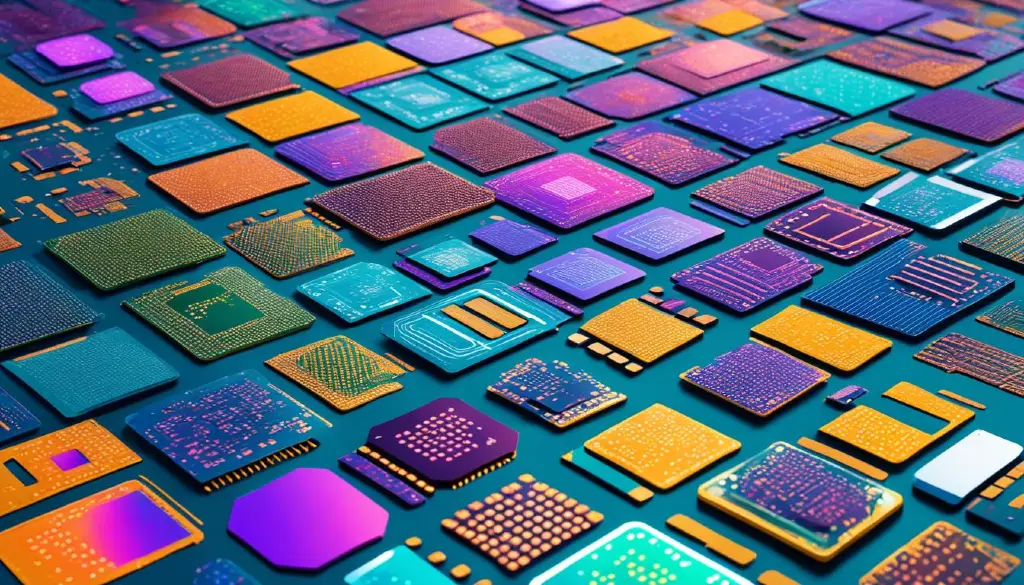
Nvidia's Market Share Predicted to Decline
Nvidia has had a strong control over the market, with a large share of over 85%, thanks to their powerful GPUs for artificial intelligence. Yet, companies like AMD and Intel are becoming more decisive and self-confident in the race for AI dominance and will most certainly become a serious completion for $1,339.1 billion AI market in the years ahead. Also, tech giants like Amazon, Google, Microsoft and IBM are starting to make their own AI chips. They want to rely less on Nvidia, aiming to control more of their tech.
The Rise of Alternative Chip Providers
With new AI chip makers and startups like Cerebras Systems, SambaNova Systems, and Groq entering the artificial intelligence chip market, Nvidia might lose some of its share. While its market value could increase by 2030, with more competition, Nvidia might be less powerful than it is today. With more competition, Nvidia might not be as powerful. This could bring more variety and energy to the chip industry.
Intel's Resurgence as America's Chip Manufacturing Champion
As Nvidia’s market share position weakens, Intel is getting ready to shine as America's top chip maker. Now it can make its own chips, which the U.S. government is supporting through various programs. Just in August of 2022, the government allocated $54 billion to boost AI chip production domestically, in addition to $174 billion in the overall ecosystem of public sector research in science and new technology. This shows how important this industry is for the United States.
This huge investment is already helping Intel and other U.S. chip projects grow. By 2030, they plan to spend more than $260 billion on artificial intelligence development. As impact of artificial intelligence continues to grow, Intel's strong manufacturing presence in the US puts it in a great spot. It will benefit from market changes and the government's focus. This makes Intel an important player in the AI chip market's future.
AI Assistants in Our Personal and Professional Lives
By 2030, we'll have virtual assistants that are a big part of our daily lives, thanks to artificial intelligence. They'll feel like they really know us, understanding what we need and like. It will help us with many tasks and decisions, like having a personal assistant, teacher, or even a lawyer.
These AI systems will be everywhere at work. They'll analyze data, write code, and support customers. Not everyone will use them the same way at first, but their use will grow.
AI Assistants in Various Roles
By the year 2030, artificial intelligence will be deeply integrated into our personal and professional lives, reshaping how we approach various tasks and decision-making processes. We will rely on AI assistants for diverse roles, from personal assistants and tutors to career counselors, therapists, and accountants.
These AI assistants will help us from the moment we wake up. They’ll give us weather updates, news, and today's schedule to start our day right. They'll even plan our workouts and keep us motivated during exercises. At work, they'll be like our colleagues, helping us schedule meetings and handle emails.
At lunch, our assistants will help us pick what to eat based on our tastes. They'll also help us shop smart, finding the best products for us. And they're not done yet – they'll even help us look our best by suggesting stylish outfits.
After work, these AI companions will find entertainment we love. They'll even help plan our vacations, making sure our budget and interests are met, and watch over our health all day, giving us updates and reminders.
Generative AI will control our smart home devices, making our living space just the way we like it. Our assistants will help out on social media, too. They’ll post for us, suggest stories, and show images and art to relax in the evening.
AI's Ubiquity in Decision-Making
For our safety and well-being, ubiquitous AI assistants will look out for anything unusual and work with our home security. Before we sleep, they can lead us in calming meditations or play soothing sounds for better rest.
They'll do more than just be helpful; they'll be our friends, talking with us and understanding our feelings, thanks to artificial intelligence in 2030. Although some might take longer to trust artificial intelligence, most will see its value because of the many ways it can make our lives better.
The Physical World Transformed by Generative AI
In the next ten years, generative artificial intelligence will change everything. It will do more in the physical world than we can imagine today. Right now, robots can do simple things, like moving boxes or cleaning floors. Their intelligence is basic and their skills are limited.
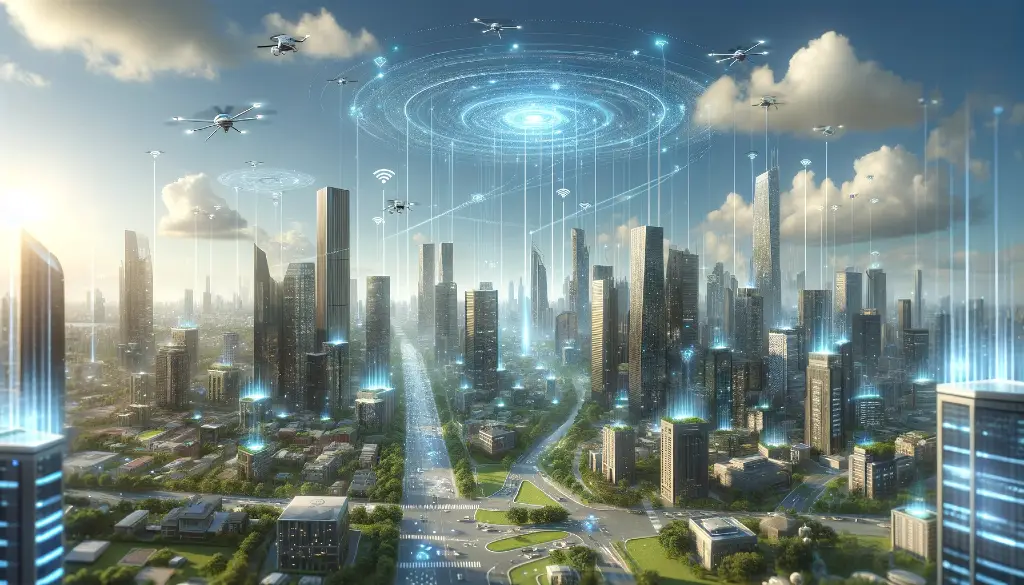
Overcoming Narrow Capabilities of Traditional Robots
But, soon we'll see a new kind of robotics. It will be like the early days of computers but for artificial intelligence. With humanoid robots, these limits will vanish. A new age of machines is coming. These new robots will be able to do many different jobs in the physical world. By 2030, we could see over 100,000 of them around us. This marks a big step in how advanced robotics are used.
Emergence of General-Purpose Hardware Platforms
This change means artificial intelligence and machine learning can do more than ever before. It will transform manufacturing, logistics, and more. These new hardware platforms will let AI work in many places and do complex jobs very well. These new systems will be able to learn a lot of different tasks. They will use their knowledge to work in various settings in ways we can’t yet imagine.
https://www.youtube.com/watch?v=2HUCwsdftMU
Companies such as Mercedes-Benz, Honda, and Amazon are already using them. They will help make work more efficient and productive through the use of artificial intelligence.
Big tech companies are also getting into the game. Amazon, Microsoft, and others are making their own AI chips. In fields like manufacturing and logistics, humanoid robots will bring big changes. This will make the market for humanoid robots even bigger on a global scale.
| AI Capabilities | Traditional Robots | Generative AI Robots |
|---|---|---|
| Intelligence | Limited | Advanced |
| Versatility | Narrow | Universal |
| Adaptability | Rigid | Flexible |
| Applications | Specific tasks | Diverse physical activities |
The line between what's digital and physical is getting thin. Generative AI is key to this. It will make big changes in how we work and transform our world. Through artificial intelligence, we'll find new and better ways to do things. This will boost productivity and make the world economy more efficient.
Outdated Concepts: Agents and AGI
The world of artificial intelligence will change fast in the next few years. Some concepts, like "agents" and "artificial general intelligence" (AGI), will soon be forgotten. Experts say people won't talk about these terms in 2030 and beyond.
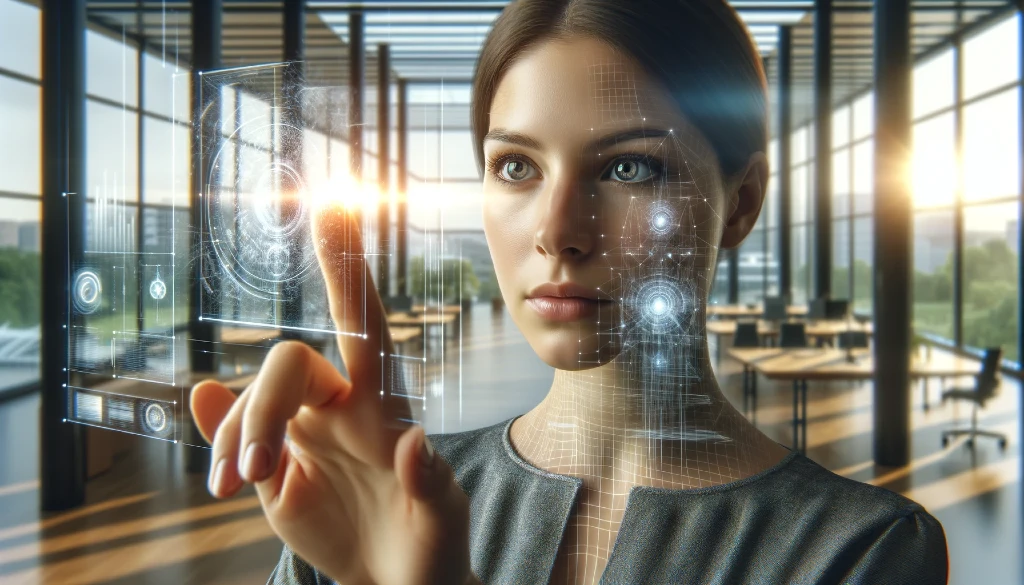
Agentic Behavior as a Fundamental AI Capability
"Agents" used to mean AI systems that could do tasks without much detail. They could make choices on their own. But now, as it gets smarter, acting like an agent is just part of the game. So, calling them "agents" won't make much sense.
With AI growing quickly, acting like an agent will be a basic feature. Just like today's computers are versatile, future AI will handle many tasks with ease. This change means there won't be a clear line between basic and advanced AI.
The Limitations of "Artificial General Intelligence"
AGI, aiming to match human smarts everywhere, is hard to pin down. As it gets better, it will outshine us in some ways but not all. So, totally matching or beating human intelligence on every front won't be the main goal.The idea of AGI, an AI system as good as or better than us at everything, is changing. AI is getting really good at some things and not so much at others.
Instead, the focus will be on making AI great at specific tasks. It will use its computing power and data skills in tailored ways. This shift mirrors how nature uses different species for different jobs. It shows a smart division of labor.
This AI boom in the next decade will bring about highly skilled robotics. Each one will be made to help different industries or tasks in unique ways.
The future of AI lies not in replicating human intelligence but in creating intelligent systems that complement and enhance our capabilities in ways we cannot yet fully comprehend.
By 2030, the difference between "agents" and "AGI" will be less clear. We'll see AI for what it really is: something that's all around us, improving our lives in countless ways.
AI-Driven Job Loss: A Political and Social Battleground
By 2030, job loss due to artificial intelligence could lead to political and social debate. Over time, worries about millions of job losses from technology will grow. The AI era will spark new talks on technology's effect on jobs and the economy.
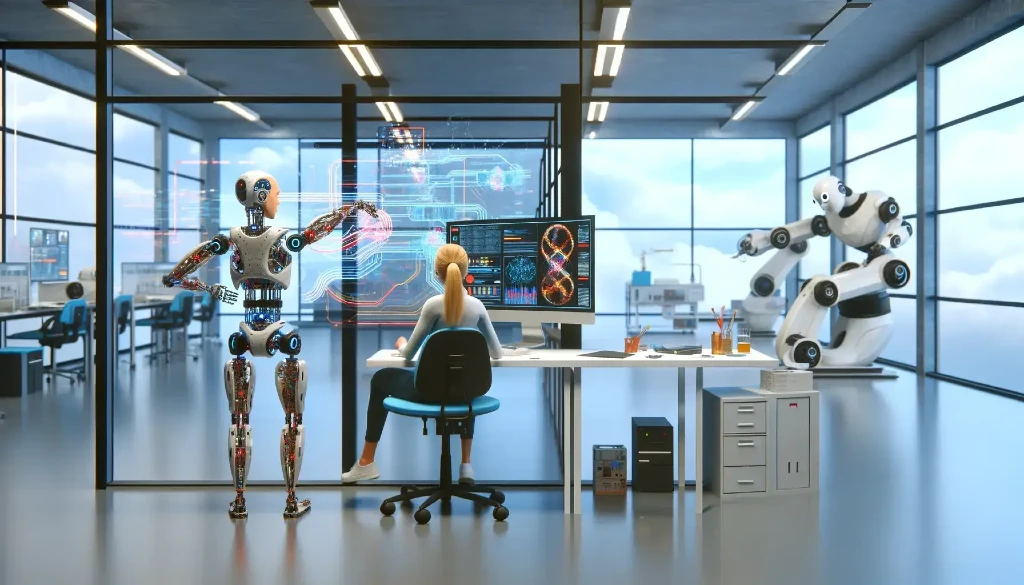
Technology-Driven Job Loss Concerns
People have been worried about technology taking over jobs since the Industrial Revolution. Now, with artificial intelligence, these fears are getting stronger. It's estimated that by 2030, about 300 million jobs could be done by AI instead of people. A study by the McKinsey Global Institute even says by then, 14% of workers might have to switch careers because of AI.
Recent research also shows that AI may affect educated office workers making up to $80,000 per year the most. This means AI won't just change factory jobs. It might also impact highly skilled jobs. By the year 2030, customer service, some knowledge workers, and beat journalists could be the first to feel the effects of competing with AI. This also includes people like administrators and authors. The study also shows that, in one way or another, highly skilled professionals might see up to 55% of their work affected by AI.
Policy Proposals for Universal Basic Income
The idea of universal basic income (UBI) is getting traction due to AI's effects on the job market. Experts warn about possible large-scale job losses by 2040. They highlight the importance of the smart use of AI and its impact on society to avoid this.
Policies to Address AI's Economic Impact
Another study says AI could boost the global economy by $13 trillion by 2030. This would mean the global economy would grow by 16%. Nevertheless, this growth could also lead to significant job cuts as the world's population continues to grow. So, we need to find creative ways to help those whose jobs artificial intelligence will replace. This is important to avoid negative effects on economy and employment.
Political Realignment Based on AI and Employment Views
Debates about how to manage AI revolution will shape politics and society. Some will push for growth and tech, while others will focus on protecting jobs and helping workers learn new skills. It's predicted that by 2030, 30% of the work in the US could be done by automated machines. Generative AI will be key to this change. So, we need a smart plan to deal with the labor market and job changes. People might choose their political views based on their thoughts on job loss, UBI, and AI's role in the job market.
Impact of AI and Machine Learning Across Industries
Artificial Intelligence and machine learning will bring a new era of technological advancements, changing many sectors across the world. AI will learn, think, and solve problems, which will reshape many industries. From finance to healthcare, AI's influence is already starting to show it's potential, affecting job roles, efficiency, and how services are delivered.
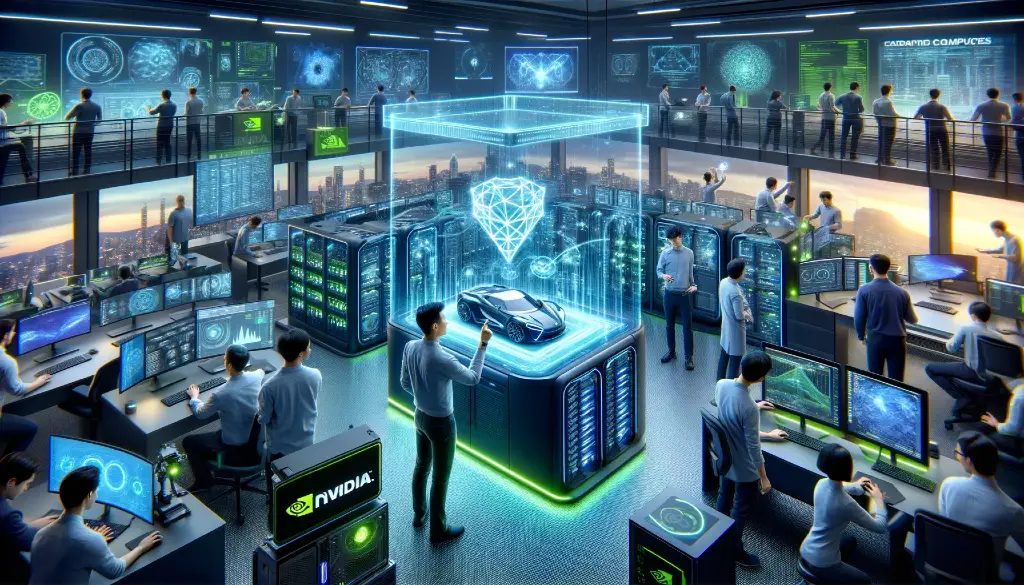
Finance and Banking
AI is making a big impact on finance and banking today. About 56% of banks already use AI for management, and 52% use it to generate revenue, according to the Cambridge Centre for Alternative Finance and the World Economic Forum. AI helps monitor transactions, provides financial advice, and improves wealth management with advanced chatbots. While AI can increase efficiency and create new jobs, it might also replace some jobs. For instance, 23% of jobs in China’s financial sector could be replaced by AI by 2027.
Media and Marketing
The media and marketing industry is undergoing a digital revolution thanks to AI. Experts like Kristian Hammond predict that up to 90% of news content could be created by AI in the next 15 years. AI tools are already used to write financial reports, and major media outlets are experimenting with AI for news writing, with mixed results. In marketing, AI usage jumped from 84% in 2020 to 279% in 2024. AI helps personalize content, optimize ad campaigns, and analyze consumer behavior, making marketing strategies more effective.
Legal Services
AI is gradually being integrated into the legal field, especially for tasks that require extensive document analysis and research. AI tools like ChatGPT can draft legal documents, conduct research, and even publish legal papers. This technology can make legal services more accessible, especially for people with low income. Startups like Lawgeex use AI for reviewing contracts, offering faster and more accurate results than humans.
Healthcare
AI is transforming healthcare in life-saving ways. It helps in diagnosing illnesses, caring for patients, and performing precise surgical procedures. AI-assisted robotic surgery is becoming more common, offering higher precision and lower risk. AI’s predictive analytics also help anticipate patient outcomes, personalize treatments, and streamline healthcare operations.
Education
AI advancements are significantly changing the field of education by making learning more personalized and accessible. With AI, educational tools can adapt to each student’s learning style and pace, providing customized lessons and practice problems. AI-powered platforms like Khan Academy and Duolingo use algorithms to identify areas where students need improvement and offer targeted exercises and online learning to help them progress. Additionally, AI can assist teachers by automating administrative tasks such as grading and tracking student progress, allowing them to focus more on teaching. Virtual tutors and AI-driven educational apps also allow students to learn outside of traditional classroom settings with online courses, offering support and resources anytime, anywhere.
Manufacturing and Factory Work
AI and machine learning are accelerating automation in manufacturing and factory work. Innovations like Elon Musk’s Tesla Bot can perform dangerous or repetitive tasks, showing AI's potential to replace or support human labor. This sector also highlights how AI can somewhat compensate with new jobs in designing, maintaining, and managing AI systems and robots.
Centralization of Information
Another major change driven by AI is the centralization of information. In the near future, most information will be centralized on a few major platforms like Reddit, Quora, Medium, Facebook, and Twitter. Other platforms like Wikipedia, Stack Overflow, Yahoo! Answers, and specialized AI-driven search engines with content publishing, including Google, Bing, and Perplexity, will also play a crucial role. This means that when people search for anything, they will likely find it on these centralized platforms, making it easier to access reliable and comprehensive information. Startups like Verdict aim to keep information short and accessible, analyzing different sources and points of view with quick visual insights.
Conclusion
By 2030, artificial intelligence will change how we live, work, and play. It's set to make a big difference, not just in the tech world but everywhere. This AI-driven future will shape our jobs, education, and how we see the world.
The impact of AI on the global economy may reach $15.7 trillion by 2030. About $6.6 trillion will come from making things more efficient. The other $9.1 trillion will be due to new ways we spend our money. From healthcare to self-driving cars and fun stuff like media & entertainment, AI will change a lot around us.
But, this big leap also brings big challenges. New AI that can generate content and talk like humans will change our jobs. We'll need new ways to work and new rules to make sure everything is fair. As AI becomes more common, we must think about its moral, social, and political impacts.
In the end, the future with AI in 2030 and after is both exciting and tough. It's up to leaders, companies, and us to use AI well and avoid its downsides. Understanding data, how algorithms work, and the design behind AI can help us make a positive change.
Moving forward, we need to use AI wisely and fairly. We should create AI systems that are clear and free from bias. Doing this will let us make the most of AI while keeping our values safe.
FAQ
Q: What are some of the most significant AI predictions for the year 2030?
A: There are many AI predictions, but some of the most significant include the widespread integration of AI technologies across various industries, the development of advanced AI systems with near-human capabilities, an increase in automation of routine tasks replacing some of the human labor, and the creation of new jobs that didn't exist before. Advances in AI will also enable more personalized and efficient use cases in areas such as healthcare, finance, and marketing.
Q: How is the AI chip market expected to diversify by 2030?
A: It's expected that by 2030, Nvidia won't dominate the AI chip market alone. Many are investing in their own AI chips. This includes companies like AMD, Intel and tech giants. It will make the AI chip industry more varied, challenging Nvidia's lead.
Q: How will AI assistants be integrated into our daily lives by 2030?
A: By 2030, we might find ourselves using AI helpers every day. This will be as casual as talking to friends now. These AI systems will take on various roles. They could act as tutors, personal advisors, therapists, or even lawyers. AI will be key in everyday tasks and decisions.
Q: How will generative AI transform the physical world by 2030?
A: Generative AI is expected to lead a big change in real-world activities. It will bring about new versatile and flexible robotics. These will change areas like making things, moving goods, and managing tasks.
Q: Why are the concepts of "agents" and "artificial general intelligence" (AGI) predicted to become outdated by 2030?
A: The talk is that AI systems will naturally act more on their own by 2030. This makes the term 'agents' outdated. Also, the idea of AGI is seen as confusing. AI will be way more advanced in some ways than us, but not in others. So, comparing them to complete humans doesn't make sense.
Q: How will AI-driven job loss become a major issue by 2030?
A: By 2030, losing jobs to AI will be a big social and political topic. Ideas like giving everyone a basic income will become real laws. This will be a key way societies choose to deal with AI's effects on jobs. What people think about handling AI in the economy will shape their social and political ties. To some extent, AI has the potential to change the nature of work, with a focus on augmenting human capabilities rather than replacing human workers.
Q: What are the new types of jobs that could be created due to advancements in AI?
A: The advancements in AI will lead to the creation of new jobs focused on overseeing AI systems, data analysis, and ethical considerations. Roles such as AI ethicists, AI trainers, and AI maintenance specialists will become more prominent. Additionally, creative and strategic roles that leverage AI's capabilities will emerge.
Q: What predictions are made about the deployment of humanoid robots by 2030?
A: The guess is that over 100,000 humanoid robots will be working by 2030. These robots will be versatile, able to do many tasks. They will change how we make things, move them around, and do jobs.
Q: What role will AI play in healthcare in the coming years?
A: AI can be used to revolutionize healthcare by improving diagnostics, personalizing treatment plans, and automating administrative tasks. For example, advanced AI systems could analyze medical data to predict patient outcomes more accurately or assist surgeons during complex procedures. The meaningful integration of AI in healthcare promises improved patient care and operational efficiency.
Q: In what ways will AI transform education by 2030?
A: The use of AI in education will create more personalized learning experiences, automate administrative tasks, and enable new ways of learning through interactive and AI-driven educational tools. AI tutors and learning platforms like ChatGPT can provide real-time assistance and enhance the learning experience for students.
Q: Will AI be able to predict the future accurately by 2030?
A: While AI will continue to improve in predictive analytics, accurately predicting the future with high certainty will remain challenging. AI technologies will, however, be able to analyze vast amounts of data to identify trends and make informed forecasts that can help guide decision-making in various fields.
Q: Can AI tools meaningfully enhance everyday human life by 2030?
A: Yes, AI tools will meaningfully enhance everyday human life by automating routine tasks, providing intelligent assistance, and improving efficiency. From smart home devices to personalized shopping recommendations, the use of AI will streamline daily activities and offer convenience and improved quality of life.
9th June 2024